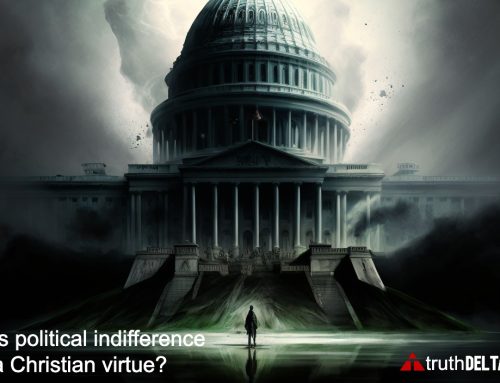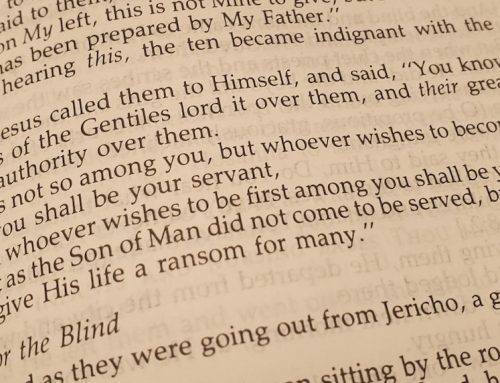
Is it just me, or are there some troubling similarities between Orwell’s Big Brother and Stanton leadership? The desire for total control over the flow of information, and the tendency for members to tattle on each other to curry favor with leadership are just a couple of the similarities. No social media is allowed. You’re not supposed to Google former members for fear of being exposed to their <hands over mouth> opinions. Do NOT read this blog. And don’t even think of building a church website or publicizing the church’s existence, because that would draw too much attention.
In fact, it’s better to circle the wagons and take steps to restrict the church’s teachings from getting into the public domain. So we certainly wouldn’t want to publish talks from meetings for public consumption, even though Paul would have died to have an amazing tool like the Internet to communicate the gospel. Forget the Internet—he would have died to have a Gutenberg Press to print tracts, for goodness sakes. (I may need to ask your forgiveness if “goodness sakes” is not an acceptable euphemism.)
Rules, rules, rules—and all designed to control people and the information they have access to. Perhaps the most troubling similarity between 1984 and the Stanton sect is the desire to revise history. There is a saying: “You are entitled to your own opinion. But you are not entitled to your own facts.” Yet that is exactly what Stanton does. When history doesn’t match its ideology, well, the history must be changed. Or worse, they deny the history outright.
- “Merie’s gone, why do you keep bringing her up?” Well, what about the historical fact that she started this sect? Doesn’t history matter? Don’t faulty premises produce faulty conclusions, as Merie used to teach?
- “Merie’s involvement in starting the sect in the late sixties and early seventies doesn’t matter.” But it does, doesn’t it? Stanton got its start by slamming Mary Baker Eddie, Joseph Smith, Ellen G. White, and Charles Taze Russell for starting their denominations. Why is Merie immune from scrutiny?
- “Our doctrines have never changed.” Oh really? Doctrine is simply “teaching.” Your teachings have changed after every May Meetings.
- “We have always taught the truth.” Well, except for the time you’ve been wrong. But you won’t be honest that you’ve ever taught anything “wrong.” Like women being forbidden from wearing pants with no zippers. Oh, I’m sorry, that wasn’t “wrong,” you’ve simply “grown” in your understanding. But a rose by any other name….
“…society rests ultimately on the belief that Big Brother is omnipotent and that the Party is infallible. But since in reality Big Brother is not omnipotent and the party is not infallible, there is need for an unwearying, moment-to-moment flexibility in the treatment of facts.
“The keyword here is ‘blackwhite.’ Like so many Newspeak words, this word has two mutually contradictory meanings. Applied to an opponent, it means the habit of impudently claiming that black is white, in contradiction of the plain facts. Applied to a Party member, it means a loyal willingness to say that black is white when Party discipline demands this.
“But it means also the ability to believe that black is white, and more, to know that black is white, and to forget that one has ever believed the contrary. This demands a continuous alteration of the past, made possible by the system of thought which really embraces all the rest, and which is known in Newspeak as “doublethink”. The alteration of the past is necessary for two reasons, one of which is subsidiary and, so to speak, precautionary….”
George Orwell, 1984
This “alteration of the past” is common in progressive politics, and it’s common in Stanton’s view of its own history. It’s Orwellian, and it’s nothing more than a propaganda technique for keeping everyone in line. I don’t expect any Stanton member to go out and pick up a copy of the “worldy” 1984. But my hope is that this blog will lead people to inquire into the history of Stanton for themselves. Truth, after all, doesn’t need to be afraid of a lie.
If Stanton leadership is afraid of this blog, what are they hiding? I’m open to any honest conversation about facts and the Bible. I’ve published my name and phone number publicly. They, on the other hand, hide behind anonymity, occasionally trolling this site with outrageous comments. Obviously, they’re more interested in Orwellian propaganda than an honest discussion about truth. If that changes, they know where to find me.






Now, now Kevin, there was a time when the church wasn't hiding everything. Here's an article in which Kim Smith is quoted. In the LA Times at that! http://articles.latimes.com/1994-10-08/sports/sp-47837_1_james-vickers "Smith, who said she is a former Catholic, dismisses those who label her church a cult. She says the Church of Christ is not affiliated with the controversial Boston Church of Christ Movement, a sect that uses "disciplining methods" in which each baptized member is subject to a "discipliner" who gives advice on spiritual problems and daily life. Smith says her church has no group leader or headquarters. She said each… Read more »
Here's the very interesting follow-up to that article: http://articles.latimes.com/1998/oct/20/news/ss-34470
Thanks for those links. I'd forgotten about Kim's brief foray into media relations.
Discipline…. no group leader …AUTONOMOUS…. hahahahahaha. I thought they didn't lie!
Prior to leaving the Sect of Merie Weiss, one of the preachers told me that Merie will be judged on her own merit. After I decided to leave this sect, another former member had told me that this preacher had shared in a class that he wished that people would just let it go. After I heard that, I shared with another that if the "bad" was to be let go, then everything would need to be let go. Convenient that they get to pick and choose what is kept and forgotten about.
I think what really affects me about that link/story is how his parents must have felt. They clearly love their son. These scriptures, in full, really hit home because while in Merie's church I did not honor my parents as I should have and am now seeing that from an older child still there. Matt 15:1Then the scribes and Pharisees who were from Jerusalem came to Jesus, saying,2“Why do Your disciples transgress the tradition of the elders? For they do not wash their hands when they eat bread.”¶3He answered and said to them, “Why do you also transgress the commandment… Read more »
Ten Warning Signs of a Potentially Unsafe Group/Leader
by Rick Ross – here's a link:
https://www.familiesagainstcultteachings.org/Cult-Education/Cult-Warning-Signs/
Something's your founder Merie Weiss said in the Moyer letter GP and TC. Not that I care what she said she's not the founder of what I believe yet take note GP and TC. As the Apostle Paul that it was never intended for the preacher to preach to churches who have been long established, To do the work God commanded all preachers to establish churches where there are none. The churches has the responsibility of supporting the evangelist as he goes place to place preaching and converting the lost and establishing churches. The pattern of the NT was the… Read more »